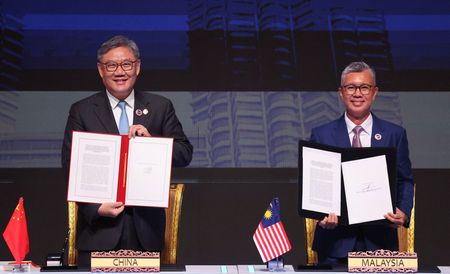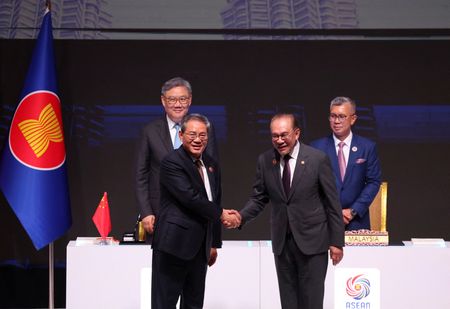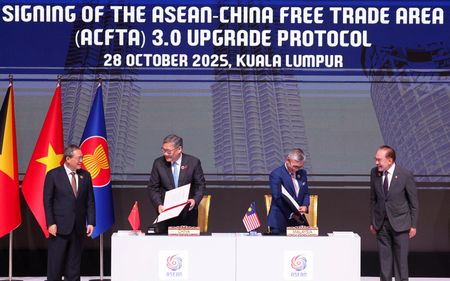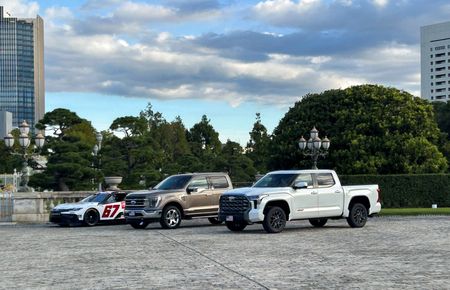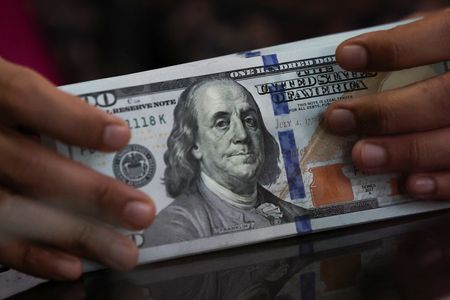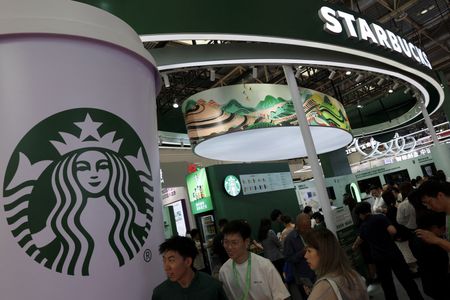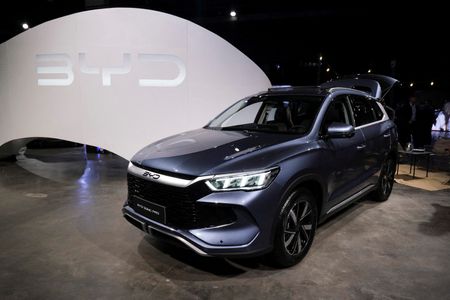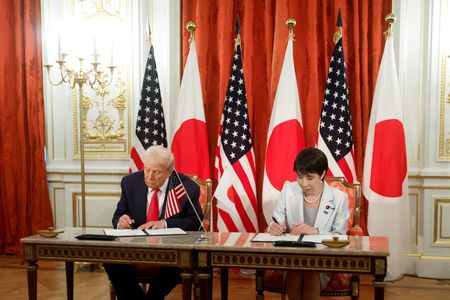By Rozanna Latiff and Danial Azhar
KUALA LUMPUR (Reuters) -China and the ASEAN bloc of Southeast Asian nations signed an upgrade to their free trade agreement on Tuesday, with leaders hailing the deal which spans the digital and green economy, and other new industries.
The 11-member Association of Southeast Asian Nations is China’s largest trading partner, with bilateral trade totalling $771 billion last year, according to ASEAN statistics.
China is seeking to intensify its engagement with ASEAN, a region with a collective gross domestic product of $3.8 trillion, to counter hefty import tariffs imposed by U.S. President Donald Trump’s administration on countries around the world.
“We must accelerate trade and investment liberalisation and facilitation and strengthen industrial integration and interdependence,” Chinese Premier Li Qiang said at the ASEAN leaders’ meeting on Tuesday.
Beijing has been seeking to position itself as a more open economy, despite criticism from other major powers of its expanding export restrictions on rare earths and other critical minerals.
IMPROVED MARKET ACCESS
The so-called 3.0 version of the free trade agreement between ASEAN and China was signed into effect at a summit of the bloc’s leaders in Malaysia, which Trump attended on Sunday at the start of a trip through Asia.
Negotiations on the upgraded ASEAN-China deal began in November 2022 and concluded in May this year, just after Trump’s tariff offensive kicked into gear. The first FTA came into force in 2010.
“The upgrade will further reduce trade barriers, strengthen supply chain connectivity, and unlock opportunities in future growth areas,” Singapore’s Prime Minister Lawrence Wong said.
China has previously said the agreement would pave the way for improved market access in sectors such as agriculture, the digital economy and pharmaceuticals between China and ASEAN.
Both China and ASEAN are part of the Regional Comprehensive Economic Partnership, the world’s largest trading bloc, which covers nearly a third of the global population and about 30% of global gross domestic product. Malaysia hosted an RCEP summit in Kuala Lumpur on Monday, the first in five years.
The bloc is seen by some analysts as a potential buffer against tariffs imposed by the United States, though its provisions are considered weaker than some other regional trade deals due to competing interests among its members.
FLASHPOINT WATERWAY
Standing in the way of China taking a leading role in regional trade cooperation are heightened concerns around Beijing’s military ambitions.
On Monday, Philippine President Ferdinand Marcos Jr criticised Chinese aggression in the South China Sea, where the two countries have been engaged in a series of confrontations.
Beijing’s foreign office responded to Marcos’ statement by saying the clashes were due to provocation from Manila.
China claims almost the entire resource-rich waterway on its official maps, overlapping with parts of the exclusive economic zones of Brunei, Indonesia, Malaysia, the Philippines and Vietnam. Unresolved disputes have festered for years over ownership of multiple islands and features.
“We must strengthen strategic mutual trust,” Li said in his Tuesday address. “We must accelerate consultations on the Code of Conduct in the South China Sea and strive for an early conclusion.”
Wong also raised the flashpoint as a key diplomatic issue.
“Inevitably, there will be differences of views around the South China Sea, but all of us agree that peace, stability, safety and freedom of navigation and overflight, are critical in this important waterway.”
TRADE WAR TRUCE
China has been engaged in an escalating trade war with the United States since Trump took office in January and imposed steep tariffs on Chinese goods.
Beijing has labelled Trump’s tariffs, which have hit most countries, as protectionism, while expanding its controls over the flow of its critical minerals and magnets. China processes more than 90% of the world’s rare earths.
The world’s two largest economies extended a trade truce when negotiators met in Kuala Lumpur on the weekend, hashing out an agreement for Trump and Chinese President Xi Jinping to decide later this week when they meet in Seoul.
Since Trump departed Malaysia on Monday morning, China has pressed for increased economic cooperation in the region, stressing the importance of open trade.
“The world must not slip back to the law of the jungle where the strong prey on the weak,” Premier Li said at a different event on Monday.
“We should more firmly uphold the free trade regime, create a high-standard regional free trade network, and vigorously and effectively advance regional integration.”
(Reporting by Rozanna Latiff and Danial Azhar; Editing by John Mair and Michael Perry)

